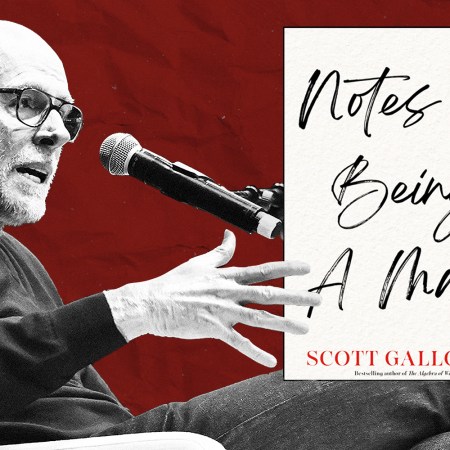According to a study published recently in Personality and Individual Differences, men are more likely to learn and act on behaviors typical of toxic masculinity as a result of their friendships with other men, not their relationships with their fathers.
A team of researchers at Australia’s Federation University administered a three-part questionnaire to 188 men between the ages of 18 and 62, which assessed social relationships, childhood experiences, and character traits (meant to determine just how “toxic” the male volunteer is). After sifting through the surveys, the psychologists wrote: “Results from a hierarchical regression analysis showed that the self-reported quality of the father-son relationship did not predict hegemonic masculinity.”
In fact, “adverse childhood experiences, mother-son relationship quality, and family support” all failed to explain why certain men were more likely to engage in damaging behaviors, like bullying, misogyny, homophobia, sexual assault and domestic violence. Instead, the emotional onus appears to rest firmly on the social sphere surrounding men. After controlling for all other variables, “a decrease in support from friends was associated with an increase in hegemonic masculinity.”
In other words: men with fewer friends — or at least, fewer friends willing to provide empathy, patience and love — try to fill the holes in their heart with acts of aggression. This can develop regardless of how happy, supportive or scholarly their childhoods were. It can fly in the face of whatever their fathers taught them.
Which, obviously, is a pretty scary thought. As always with survey-based research, it’s important to take the small sample size and location into account. But it’s difficult not to think of examples in American society (locker room chat, fraternities with predatory hazing practices, men’s-only golf clubs, patriarchal industries like Wall Street or Hollywood), where grown or growing men have clearly left the nest and are taking their behavioral cues from the other men around them — friend or foe — instead of their fathers.
Not to mention, the younger generations have an entirely different F-word to think about: followers. Enough studies have examined the psychological tornado that is social media. It certainly can’t help hegemonically-inclined men make more friends (though it may give the illusion of a solution). It’s fascinating, and sobering, to consider what sort of willpower young men have in forming themselves, when they’re being influenced by millions of other men around the world.
Still, let’s make something clear — just like women, men have autonomy over their actions. Tracking down the root causes of behavior is useful, but that doesn’t mean men shouldn’t be held accountable for that behavior, especially if it falls under an unspeakable action or worldview listed earlier. Men need to start demanding more from their friends, and recognizing that compassion, fairness and vulnerability aren’t weaknesses. They’re assets. They’ll make you better friends, better citizens, better partners, and one day — no matter how long the lessons you teach your children will last — better fathers.
The Charge will help you move better, think clearer and stay in the game longer. Subscribe to our wellness newsletter today.



















